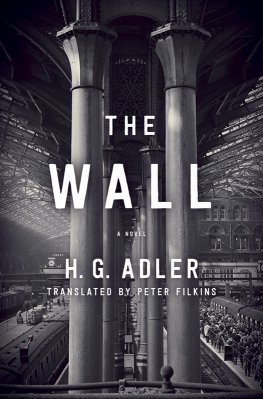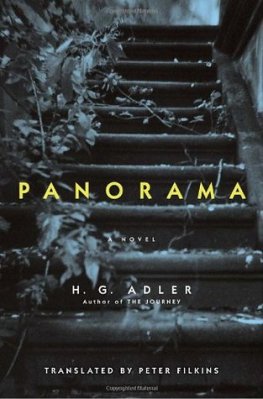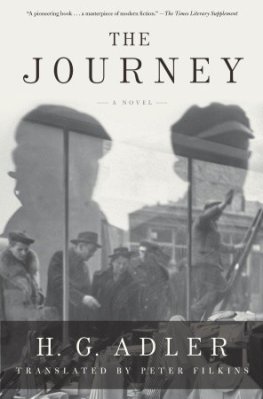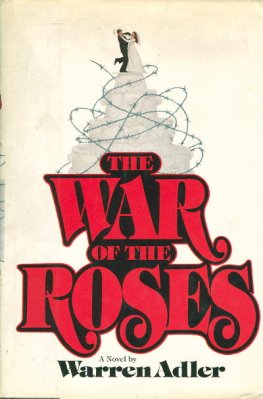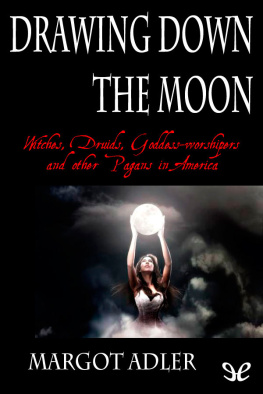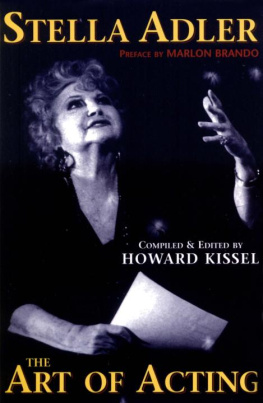The purpose of poetry is to remind us
how difficult it is to remain just one person,
for our house is open, there are no keys to the doors,
and invisible guests come in and out at will.
Czeslaw Milosz, Ars Poetica?

H. G. ADLERS The Wall MARKS THE COMPLETION OF THE SHOAH TRILOGY that he began with the writing of Panorama in 1948 and continued with the composition of The Journey in 195051. Having finished a first draft of The Wall in 1956, and an extensive revision in 1961, Adler unfortunately did not live to see publication of the novel in 1989, a year after his death as a postwar exile in London. However, he considered it his crowning achievement as a novelist, and continued to make small changes to it well into the 1970s. Although he would also go on to write a social satire titled Hausordnung (House Rules), published in 1988, The Wall essentially marks the end of his career as a novelist, a remarkable run that saw the composition of six novels in ten years, beginning in 1946, as well as his seminal monograph, Theresienstadt 19411945: The Face of a Coerced Community.
Three of those six novels were never published, while the first two parts of the trilogy, Panorama and The Journey, were published out of their intended order in 1968 and 1962, respectively. After completing The Wall in 1961, Adler continued to write and publish short stories and essays, work on his other great study of the deportations, Administered Man, published in 1974, and privately write the poems that would eventually make up a collected volume of twelve hundred pages, published as Andere Wege (Different Ways) in 2010. Adlers last book, published in 1987, was a treatise outlining an experimental theology that he had begun writing in 1938 and continued to work on during the two and a half years he spent in Theresienstadt. Although Adlers career stretches across many disciplines including literature, history, sociology, philosophy, and religion there is something fitting in the fact that his last book is essentially the first he set out to write. Despite his having been deported from his native Prague and plunged into the nightmare world of Theresienstadt, then surviving no fewer than three concentration camps, including Auschwitz, as well as the loneliness and penury of forty years of exile in England, Adlers sensibility remains consistent and unified, a mien suffused with the powerful, extreme experience it had survived, and yet able, in the end, to stand outside of that experience and give it meaning and order.
The struggle and cost of the effort to remain a unified person alive to the present, despite the weight of the past, lies at the heart of The Wall, and, as with Panorama and The Journey, Adler clearly taps his own biography in the shaping of this epic tale. At the novels start, we find Arthur Landau living in a metropolis that clearly mirrors Adlers postwar London, while the city he remembers from back there is a sure stand-in for Adlers native Prague. The fact that Arthurs first wife, Franziska, perished in the war also alludes to the loss of Adlers first wife, Gertrud Klepetar, to the gas chambers in Auschwitz. Similarly, the importance of Arthurs second wife, Johanna, in saving his life ties directly to the crucial role that Adlers second wife, Bettina Gross, played in getting him through the postwar years and beyond. Like Arthur, Adler also struggled to find sure footing in London, both economically and socially, despite the company of fellow exiles and friends, such as Elias and Veza Canetti, Franz Baermann Steiner, and Erich Fried. The Wall in fact functions as a roman clef, for the portraits of Professor Kratzenstein, the oddly named So-and-So, and Oswald and Inge Bergmann are indeed caricatures of Theodor Adorno, Steiner, and the Canettis, respectively, while lifelong friends and colleagues of Adlers also show up in various transformations.
But in several important ways this is where biography and fiction part ways, and even more so in The Wall than in the first two installments of Adlers trilogy. For one thing, Arthur has two children with Johanna, whereas Adler had only one son with Bettina. Arthurs work on his Sociology of Oppressed People certainly parallels Adlers work on Theresienstadt 19411945, yet by the time The Wall was completed in 1956, Adler had enjoyed extensive success and renown with the publication of his monograph, whereas Arthur still awaits publication while doubting that his talents will ever be properly recognized or employed. Last, though Adler suffered the difficulties of exile, throughout his postwar life he continued to return to Germany, Austria, and Switzerland on extensive reading tours and research visits, all of which complicated the nature of his experience as an exile. True, he never did return to his native Prague, but as a German speaker and writer he identified strongly with German culture and society. Though he stated that he could not live in a land where the corner grocer might once have been a Nazi, he nonetheless had no trouble whatsoever returning to it.
Hence, while The Wall undoubtedly has powerful ties to his own life, it is important to realize that Adler is also the one standing on the outside, shaping Arthur Landaus tormented psyche, rather than simply suffering it once again. Arthur may confess, On the day they announced that the war was over, there was nothing left but a snakeskin, a dried, brittle skeleton that I could discern through tender self-regard, though I the living animal had slipped away, gone without a trace, no longer to be found, and this may indeed be a very real description of Adlers own state of mind in 1945, but the fact of its articulation argues that the author stands at a further, more stable remove. In this way, The Wall serves as the quintessential novel of the survivors duress and guilt, for while Adler is the artist determined to shape it and give it meaning, his challenge is also to survive the seeming injustice of his own survival. Likewise, Arthur cannot help feeling that he is someone who has ceased to exist, called it quits, [is] completely spent, the vestige of a memory of who I no longer am, someone who can never find his footing, never land in one place, but there is no reason to suppose that, in the end, the same holds true for Adler.
The Wall, like a symphony, is an arrangement of competing and interwoven themes, and Adler is the composer-conductor directing the entire opus. As a modernist montage in the same vein as the works of Joyce, Woolf, and Faulkner, the novel takes up and repeats a host of key notes: the loss of Franziska and the struggles of the war; the return to Prague and Arthurs hope of finding his parents alive; work in a museum that collects Jewish artifacts; Arthurs anxiety about crossing the border and leaving his homeland and his friends for good; his eventual arrival in the metropolis of London; the effort to reconnect with old friends there and find meaningful employment as a writer and an intellectual; the neglect he suffers at the hands of prominent intellectuals who spent the war in exile; the first encounters with Johanna Zinner among these circles; their eventual courtship and engagement; the rearing of their two children; and, finally, Arthurs continual fantasy of being that first Adam expelled forever from Paradise. Add to this list the recurring nightmare of two pallbearers showing up on his doorstep to cart him off in a hearse while hes still alive, and the phantasm of Arthurs consciousness is complete.
Like any consciousness, Arthurs is a dense entanglement of past and present, fantasy and reality, daydream and meditation, hope and regret, tenderness and suffering, love and guilt all of it occurring and recurring through the connected disorder of an extended chain of thought. However, because of the intensity and extremity of his experience, Arthurs consciousness threatens to bind him forever to the past, and the narrative strategy of

